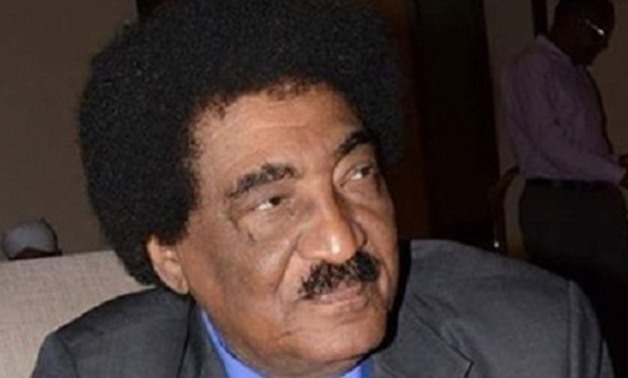
Sudanese ambassador to Egypt Abdel Mahmoud Abdel Halim - File photo
CAIRO – 26 February 2018: Sudanese ambassador to Egypt, Abdel Mahmoud Abdel Halim, will return to Cairo early March to resume his diplomatic duties following two months of absence, he told the Kuwaiti News Agency Monday.
Sudanese Minister of Foreign Affairs Ibrahim Ghandour stated Saturday that Abdel Halim may return to Egypt, at any time, after attending the conference for Sudanese Ambassadors abroad which will kick off on Monday and will last three days in Khartoum, with the participation of Sudanese ambassadors all over the world.
In an interview with Shrouk Sudanese channel, Ghandour reiterated his assurance on the importance of Egypt-Sudan relations. He said the relations between Egypt and Sudan are like the relations between two neighbors, oscillating up and down, but it didn’t reach the stage of confrontation at any time.
Earlier this month, Egyptian Foreign Minister Sameh Shoukry and Ghandour met in Cairo to discuss regional and international issues, including issues relating to the Nile basin and water security.
Ghandour then said that Egyptian-Sudanese relations are “sacred and will not be ruined.”
Both Shoukry and Ghandour voiced their concerns over the verbal jousting taking place between Sudanese and Egyptian media outlets and agreed to establish a joint media honor code.
Ghandour‘s Saturday announcement comes around two months after Sudan recalled the ambassador ‘for consultation’, which was said to be due to disputes over the ownership of the Halayeb Triangle border area, and over the use of the water from the River Nile that passes through both territories.
On January 4, Abdel-Halim was withdrawn for consultation, according to the Egyptian Foreign Ministry, which replied that Cairo was evaluating the situation in order to act accordingly.
Sudan claims that it has sovereignty over the Halayeb and Shalateen triangle, which is located inside Egyptian territories. Halayeb and Shalateen, or the Halayeb Triangle, is an area of land measuring 20,580 square kilometers, located on the Egyptian-Sudanese border on the Red Sea coast. It is part of the Red Sea governorate and consists of three major towns.
The area belongs to Egypt politically and administratively, but has been one of the major sticking points in Egyptian-Sudanese relations since the demarcation of borders between the two countries carried out during the British occupation of Egypt in 1899, at a time when Sudan was part of the Egyptian Kingdom.
Recently, the bilateral relation was aggravated due the controversial Ethiopian Renaissance Dam. Sudanese media claimed that Egypt has sought to exclude Sudan from the tripartite talks with Ethiopia. On January 8, Foreign Minister Shoukry stressed that Egypt did not ask Ethiopia to exclude Sudan from negotiations.
Egypt has voiced its concern over Ethiopia’s dam construction, as it would affect Egypt’s 55 billion cubic meter share of the Nile water. However, Addis Ababa says the dam is necessary for its development and would not negatively affect the downstream countries (Egypt and Sudan).
GERD crisis
The Addis Ababa summit last month was considered a breakthrough in the stalled negotiations of the Grand Ethiopian Renaissance Dam (GERD) between the three African countries. It follows years of negotiations, since May 2011, between Egypt, Ethiopia and Sudan.
Reassuring words were said by President Sisi after the tripartite meeting in Addis Ababa, where he addressed the people of Egypt, Ethiopia and Sudan, saying “Be absolutely reassured… Ethiopia's and Sudan's interest is Egypt's as well...we are speaking as one country, not three states.” He even declined to call the GERD issue a “crisis.”
However, a recent development in internal Ethiopian affairs, which led Ethiopian Prime Minister Hailemariam Desalegn to resign, has sent fears of a negative impact on GERD negotiations. Experts signal Desalegn as a main factor in the Nile River issue, due to his friendly relationship with President Sisi.

Comments
Leave a Comment